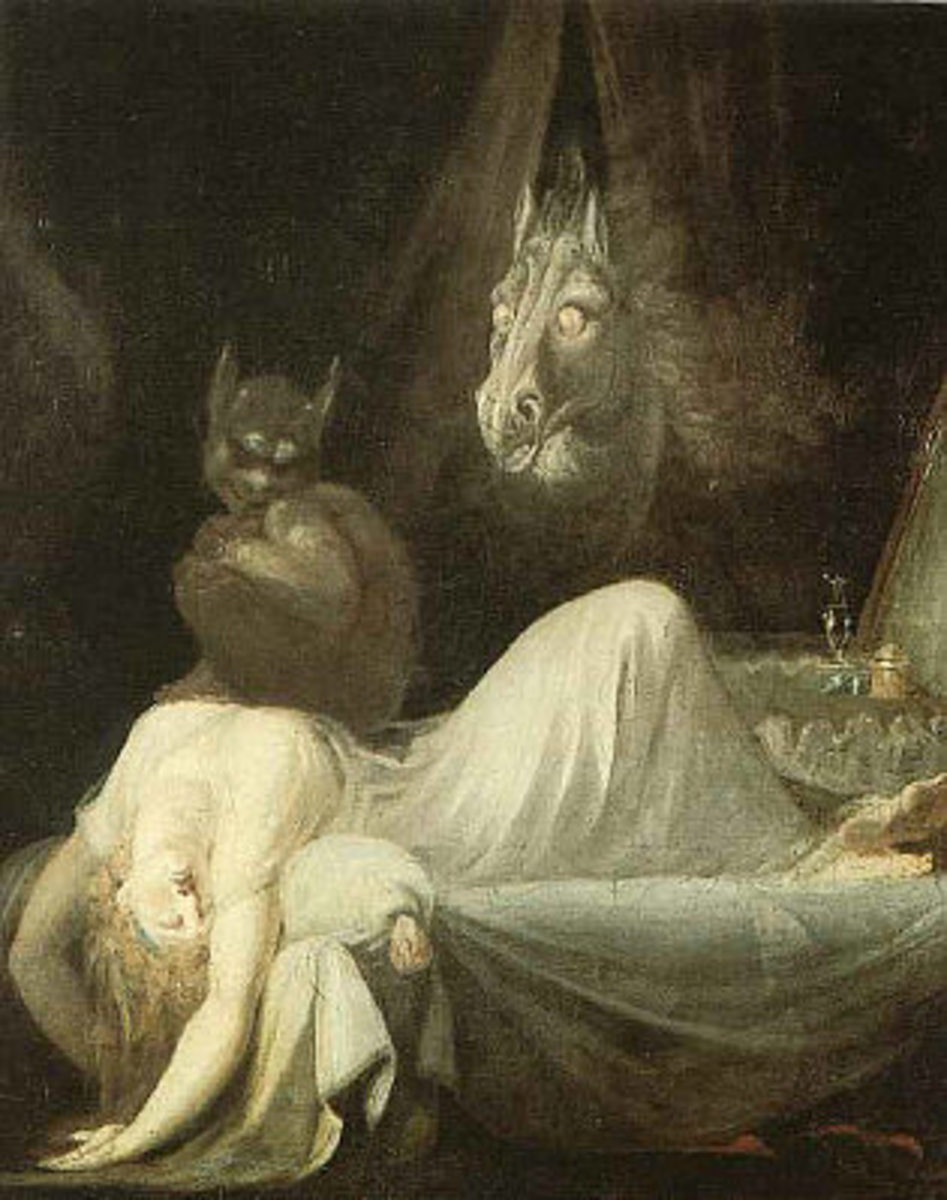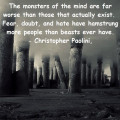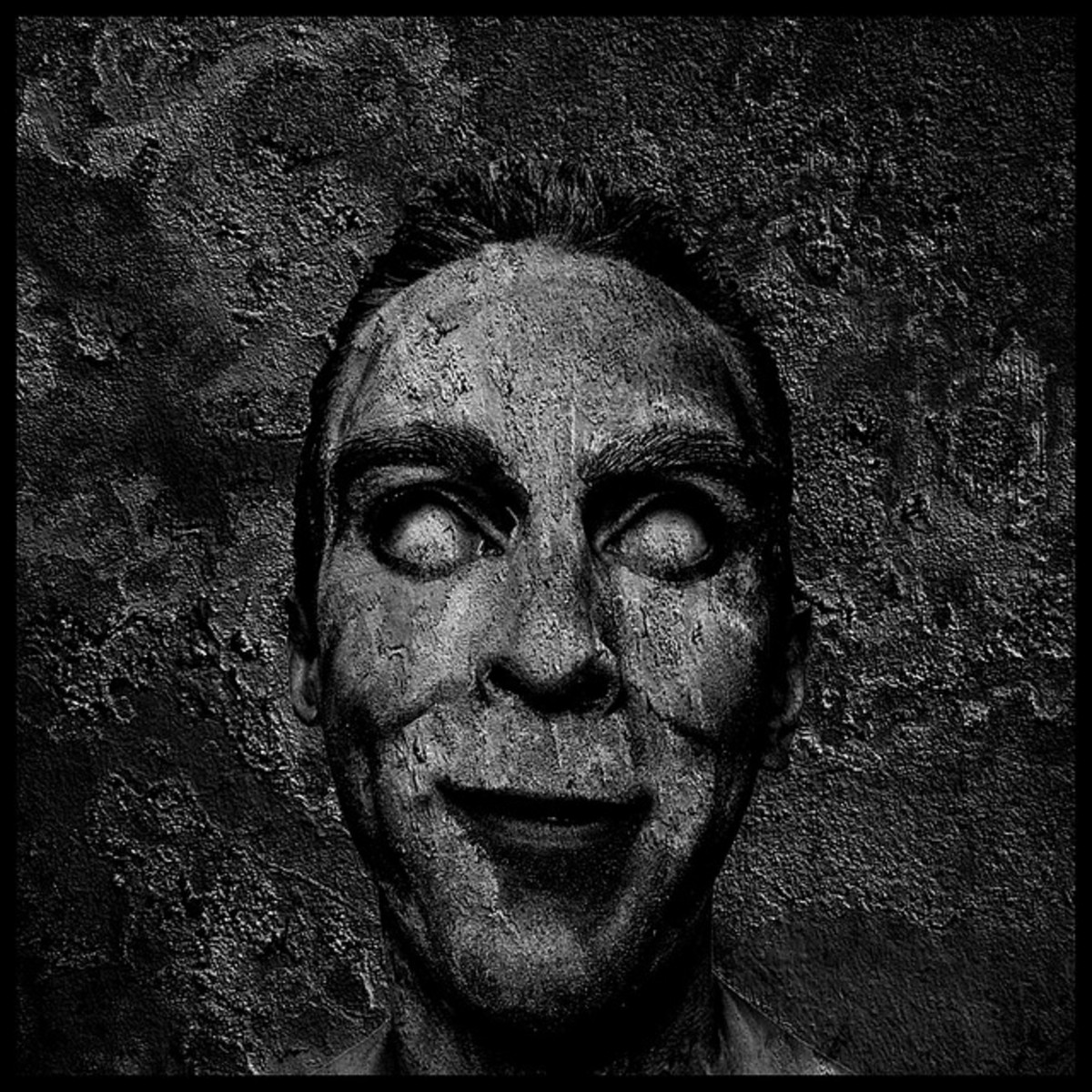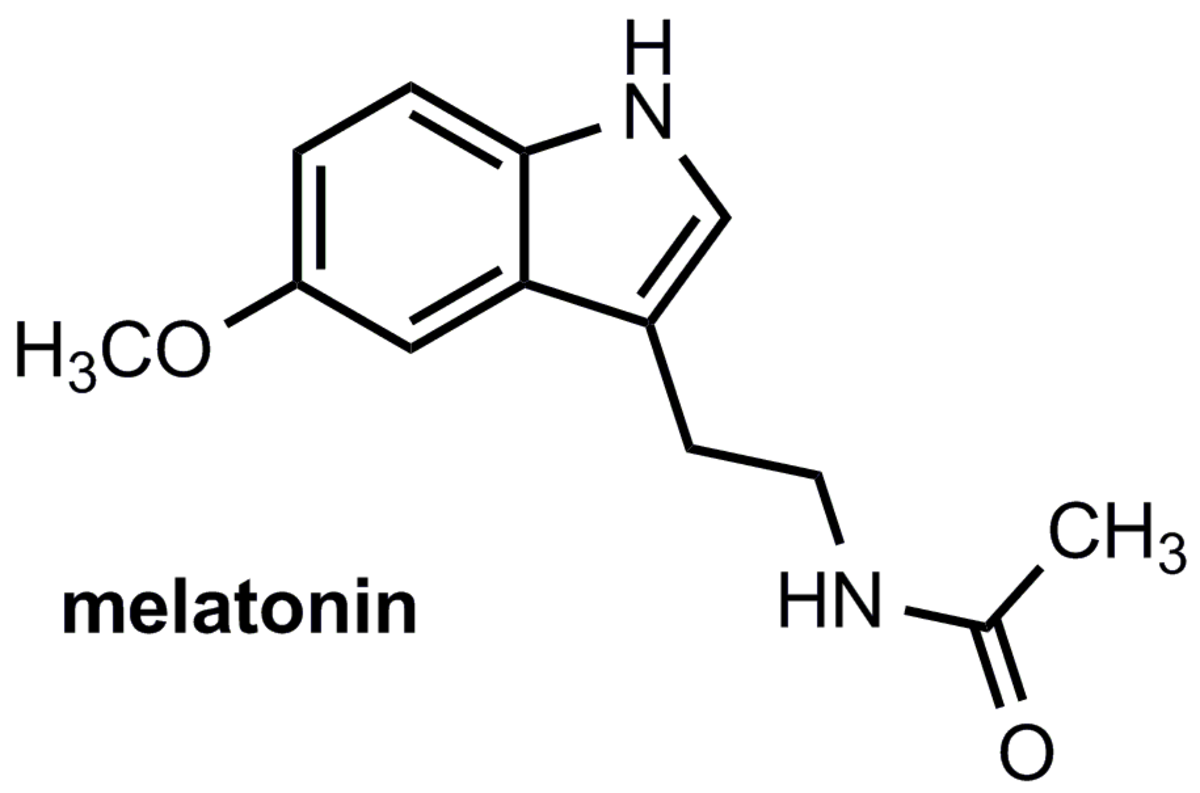- HubPages»
- Health»
- Personal Health Information & Self-Help»
- Self-Help for Sleep Issues & Sleeplessness
How to Help a Child With Night Terrors
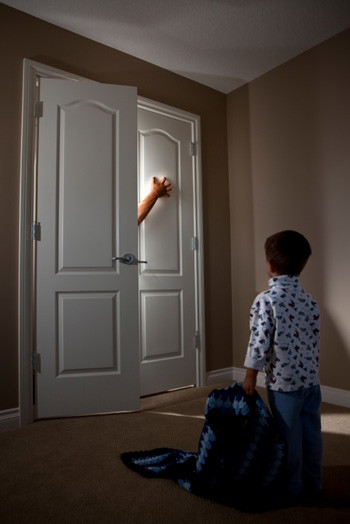
What are Night Terrors?
A night terror is a sudden feeling of extreme fear that awakens a sleeping person, usually during slow-wave sleep, and is not associated with a dream or nightmare.
Source: Dictionary.com
What Causes Night Terrors in Children?
Night terrors are caused by over-arousal of the central nervous system (CNS) during sleep. This may happen because the CNS (which regulates sleep and waking brain activity) is still maturing in children.
Night terrors have been noted in kids who are:
- overtired
- ill
- stressed
- fatigued
Children who are sensitive to change may also experience a night terror when their normal sleeping routine or other day-to-day routine is disrupted.
What Happens During a Night Terror?
During a night terror a child may seem awake, eyes open, sitting up, standing up, thrashing around, screaming in distress, disorientated, etc.
There may also be physical signs of terror such as increased heart rate, sweating, or heavy breathing.
As a parent this is a very scary time.
As a parent find peace in the fact that your child will not remember the details of his or her night terror and it's affecting you more than it is them.
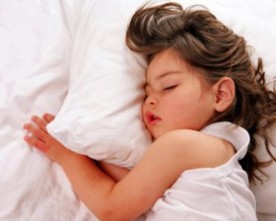
When Do Night Terrors Occur?
The obvious answer would be that night terrors occur at night.
A better question would be at what point during a child's sleep cycle do night terrors occur?
Let's start with a brief explanation of a "normal" sleep cycle.
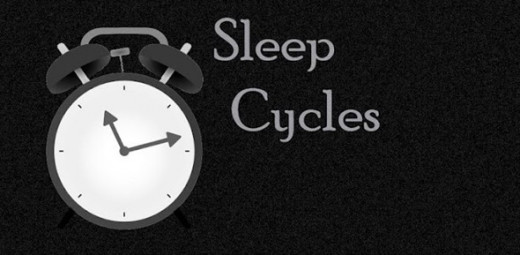
A normal sleep pattern consists of two states of sleep referred to as rapid eye movement (REM) and non rapid eye movement (NREM).
During a normal nights sleep, the body cycles between NREM and REM sleep. Typically, people begin the sleep cycle with a period of NREM sleep. Each stage of NREM sleep can last from 5 to 15 minutes as the person transitions into the REM phase of sleeping. In a full nights sleep (8 hours) this cycle is repeated approximately 3-4 times.
Night Terror Facts
- 3% - 6% of children will experience a night terror
- Average age of night terror onset is 3.5 years old
- Night terrors occur mainly in children between the ages of 4 - 12 years of age
- Sleep terrors usually occur during the first third of sleep (third transition phase)
- Sleep disturbances often run in families
- Night terrors can occur more than once in the same night
- Night terrors can last from a few minutes to 30 minutes
Night terrors unlike nightmares occur during non-REM sleep and happen typically within 2-3 hours of a child falling asleep.
As the child transitions from non-REM sleep to the first stages of REM sleeping (otherwise "light" REM sleeping) a child may become frightened or stimulated by something.
Whatever startles the child causes an intense fear, agitation, or a combination of the two. Which in turn leads to the child who is transitioning to the next stage of sleep being terrorized yet inconsolable as they are still "sleeping".
Usually the transition from one phase of sleep to the next is smooth, short, and uninterrupted; but in some instances night terrors can occur within the short window transition.
Parental Note
While not to make light of a scary situation for parents it's important to remember that children have vivid imaginations. They could be scared of the boogieman, the monsters under the bed, being forced to eat broccoli, etc.
Nightmares vs. Night Terrors
Nightmares and dreams occur during REM sleep and allow the recall of some (if not all) the details that took place during the episode. Nightmares happen during a period of heavy sleep (REM) where the person experiencing the nightmare is semi-aware of the situation.
During a nightmare your child will be able to be comforted and may wish to share the story with you at some point.

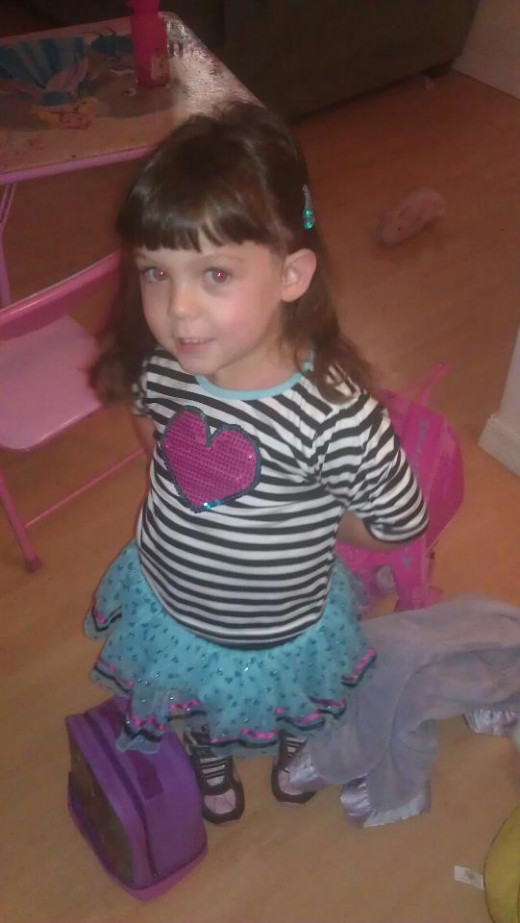
My Experience with Night Terrors
It was about 11 pm. when my youngest daughter Megan (pictured right) woke up in a panic screaming "noooo Mommy, no, no Mommmmmmy".
I remember it vividly, like it happened yesterday, simply because it struck fear in my heart.
I ran into her room and witnessed her thrashing around in her bed still screaming "no, noooo". I hurried over to her and picked her up in my arms whispering in her ear "it's ok Meg, mommy's here, it's ok" over and over again.
I thought she was awake, and that surely I, her mother could soothe her like I had so many other nights. It wasn't until I laid her back down in bed peacefully, and started Googleing the heck out of search terms that I learned that it was a night terror my little girl was experiencing.
Her night terror continued for what seemed like forever. Luckily I had friends over that night who were there to console me after I failed to console my child (which in itself filled me with "mommy guilt").
The whole episode as I now describe it took about 20 minutes from beginning to end. I can hardly believe how real and unsettling it was to me and how peacefully she seemed to fall right back to sleep afterwards.
It happened two more times within that month. But after that first night I was more prepared to handle her night terrors although I was hoping it was a one time occurrence. Regardless of how much I had read, inquired, and searched it still strikes fear in the heart of any parent being awaken by a screaming, disoriented child.
Looking back I attribute it to her being anxious, with an underdeveloped central nervous system, lacking the ability to comprehend the changes occurring in her life, and her being an overly sensitive child. She was a little younger than 2 years old then, now at 4.5 years old she recalls those life changes fondly.
Regardless no mother, father, grandmother, etc. can handle those blood curdling screams from their loved one(s) while feeling completely helpless. Her night terrors terrorized me for a month even with an adult rationale of what was happening, once they stopped I still was on guard for a few months there after. I'm glad to say night terrors were short lived in our house.


After a Night Terror
Since Megan was in a deep sleep I find peace in realizing she will not remember the traumatic night terrors she experienced. Nor will she have any mental images to rethink about or to scare her further.
Night Terrors really are way more traumatizing for the caregiver rather than child (remember I speak from experience). It's safe to say that night terrors are semi-normal in otherwise healthy children when they are the only “abnormal” issue presenting. It’s also safe to assume that your phase of sleep disturbances in this case night terrors will come and go as easily (or as uneasily) as ours did.
Parental Note
Of course it goes without saying if your child is suffering night after night with night terrors be sure to consult your pediatrician.
Do Night Terrors Reoccur?
Night terrors can be hereditary sleep disturbances. So if a family member has ever suffered from night terrors, sleepwalking, or other sleep disorders the chance your child will is about 80% higher than that of a child who is not genetically predisposed to sleep issues.
As I mentioned above Megan had 2 more night terrors and we haven't had any since. Fingers crossed we don't have any more; however the likelihood that she will have another episode is higher than if she had never experienced one in the first place.
I did in the meantime recall her father mentioning he was a sleepwalker as a child, which only further supports the hereditary aspect of night terrors.
Your child may have a single night terror or several before they cease altogether. Only time will tell but I do think it’s safe to surmise that the night terrors simply disappear as the nervous system matures.
Is There Treatment for Night Terrors?
There's no treatment for night terrors to date, but you can help prevent them.
Things to try if your child is suffering from night terrors:
- reduce your child's stress
- establish and stick to a bedtime routine that's relaxing
- make sure your child gets enough rest to prevent becoming overtired
Talking with your child about their night terrors will cause confusion. Remember that this is not a bad dream about monsters where you reassure them monsters are not real.
Talking with your child about something that seems scary but they have no recollection of could cause greater anxiety; which in turn could lead to more night terrors.
Only approach the subject of night terrors if your child asks; thus ensuring it was a nightmare and not a night terror.
Poll
Has Your Child Suffered With Night Terror(s)?
More On Night Terrors
How to Cope with Night Terrors
Night terrors are often very upsetting for parents who have never dealt with them before.
The best way to handle a night terror is to wait it out patiently and make sure the child doesn't get hurt by thrashing, wiggling, or walking around.
This can be done by cuddling your child or ensuring he or she is "safe" from harm in their bed.
Use pillows, blankets, stuffed animals etc. to cushion any possible fall or bruises that could happen. Within a few minutes or so if left undisturbed your child will simply fall back to sleep as if nothing happened.
Good luck trying to fall back to sleep yourself after a night terror by your little one.
Keep in mind that while your child surely seems awake they are not. It is always best not to try to wake kids during a night terror. Attempts usually don't work; kids who are awoken during a night terror are likely to be disoriented and confused, and often take longer to settle down then allowing the night terror to run it's course. As hard as it may be to let your little one scream and cry it is much easier on them to let the night terror run it's course. Thus allowing the transitioning from NREM sleep to happen "naturally".
Understanding night terrors can reduce your worry and help you get a good night's sleep yourself. But if night terrors happen repeatedly, talk to your doctor about whether a referral to a sleep specialist is needed.

More From This Author
- Birth Order Personality Traits: Can You Relate?
What does your birth order say about you? Your husbands? Your childrens? Read on to learn about the importance of birth order within the family dynamics. - Introvert or Extrovert: Who are You?
How do you feel your personality rates between needing your solitude and enjoying a social life? Let's look at the different characteristics of the introvert personality and the extrovert personality to see where YOU fall on the scale. - What is Your Personality Type? Type A, B, C or D?
Start by taking the quiz and then read your personalized results to see if you are considered a type A personality or a type B personality. Maybe type C? Type D?


